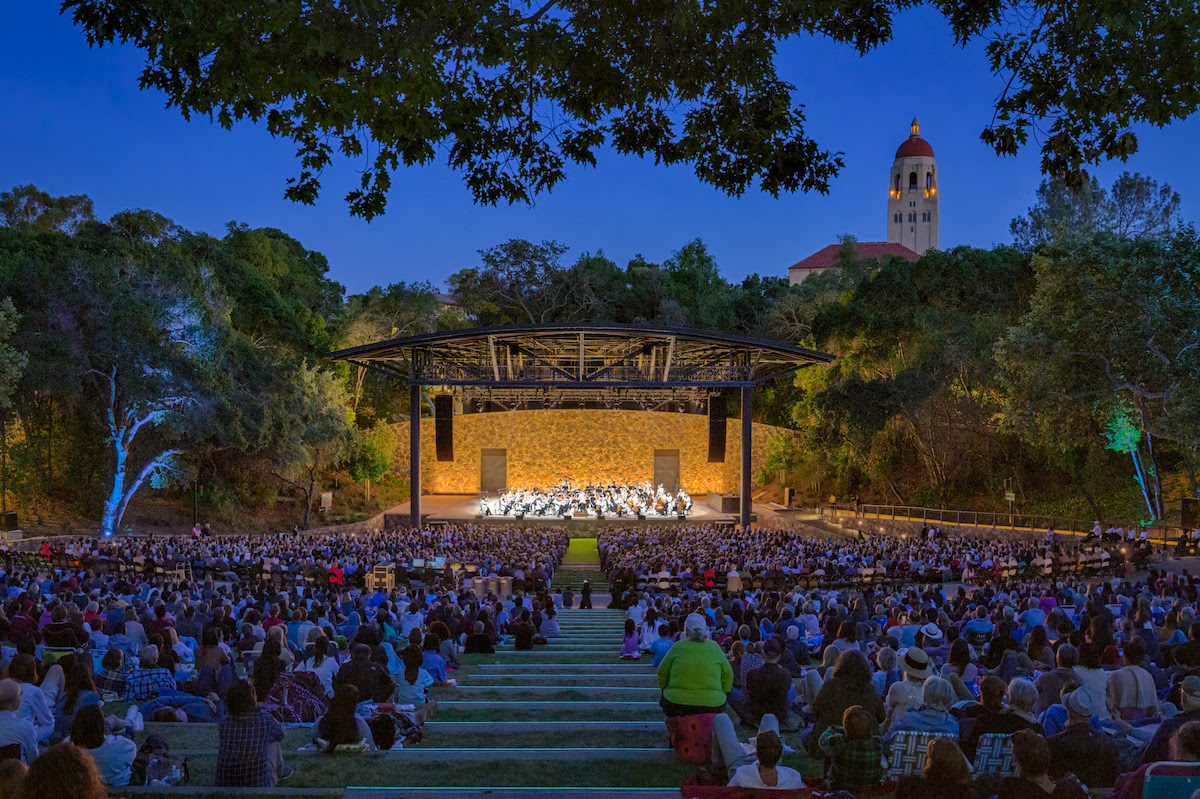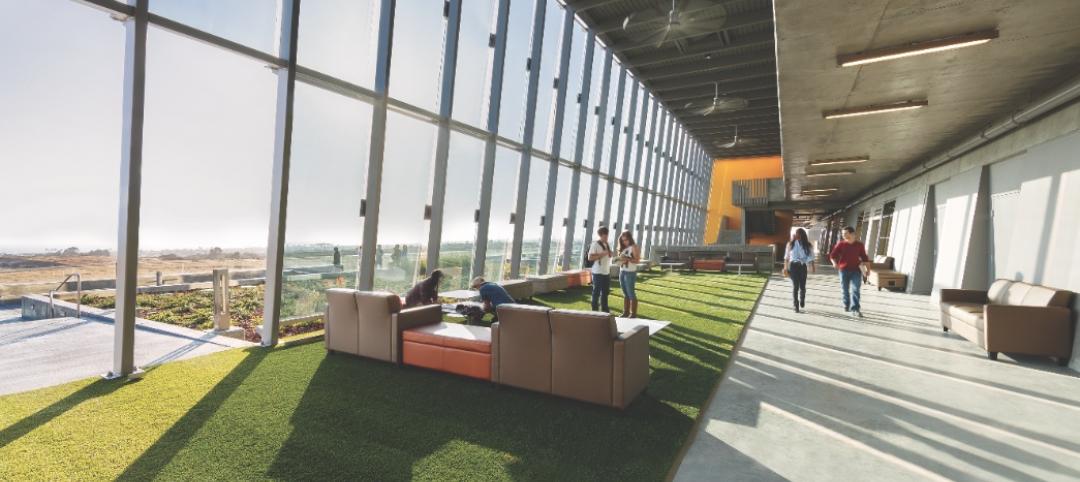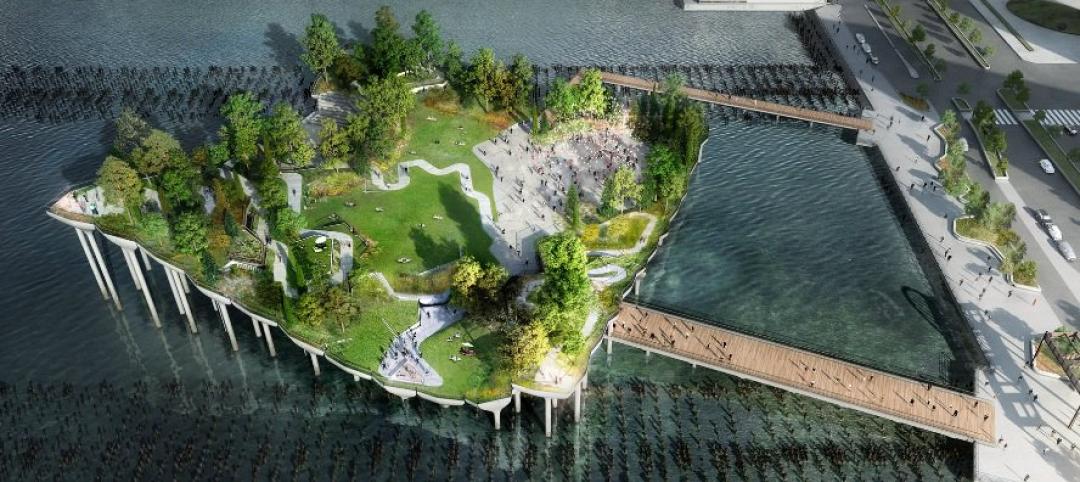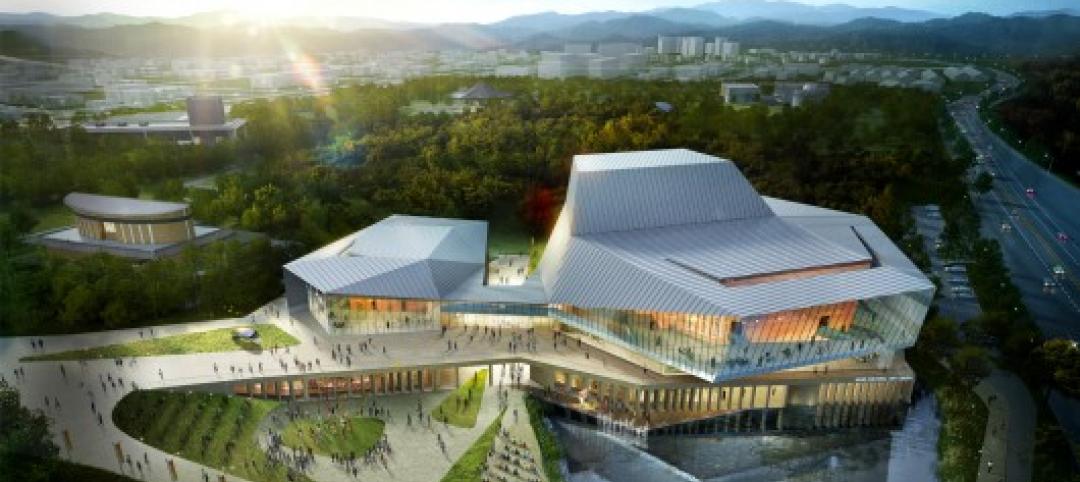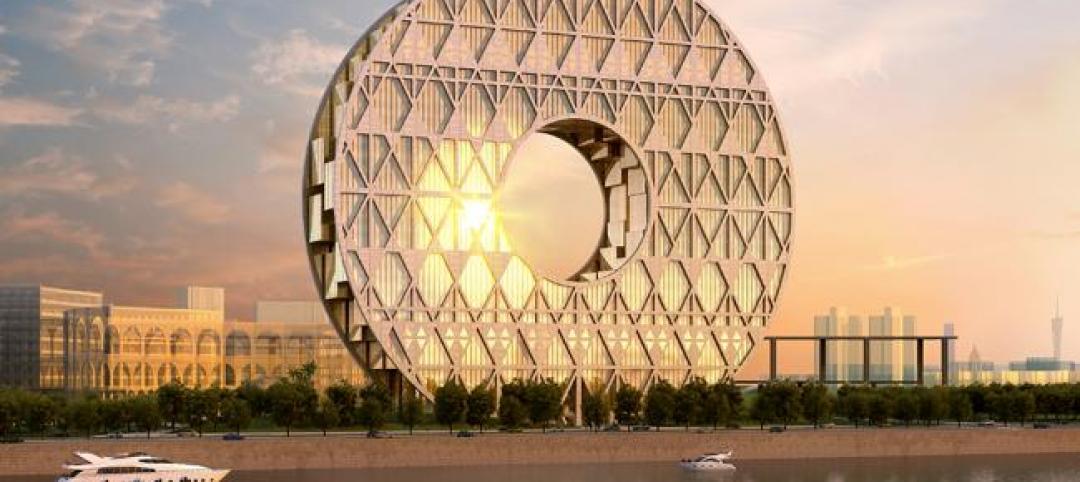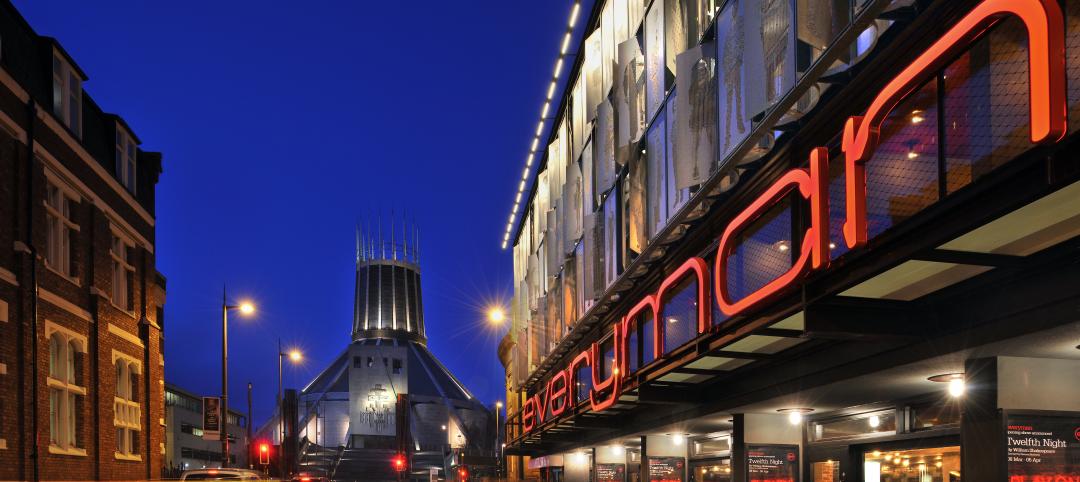The Laurence Frost Amphitheater redesign has completed at Stanford University.
The amphitheater was originally built in 1937 to host university functions and events. The space quickly evolved to host community events, musical acts, and classical concerts before falling into disuse over the past few decades due to lack of accessibility and production infrastructure.

The goal of the Frost Amphitheater's recent redesign was to create greater accessibility for larger acts to play and the ability to house student shows and various university events. Additionally, CAW’s design mission was to create a more modern experience while preserving the beauty and serenity of the historic site. The modernization was achieved by the creation of curved tunnels for wayfinding and crowd management and a curved wall that serves as a shield to the stage building beyond.

New entrances to the amphitheater were created by designing a unique and strategically placed system of tunnels through the tree-covered slopes. Guest amenities, an updated service and stage entrance, a stage building with a canopy cover to protect the performers, and upgraded lighting and sound infrastructure were also included in the redesign.
When the amphitheater opens without any social distancing restrictions up to 8,000 guests can be accommodated.
Related Stories
| Jan 2, 2015
Construction put in place enjoyed healthy gains in 2014
Construction consultant FMI foresees—with some caveats—continuing growth in the office, lodging, and manufacturing sectors. But funding uncertainties raise red flags in education and healthcare.
| Dec 28, 2014
AIA course: Enhancing interior comfort while improving overall building efficacy
Providing more comfortable conditions to building occupants has become a top priority in today’s interior designs. This course is worth 1.0 AIA LU/HSW.
| Nov 26, 2014
USITT Selects Bahrain National Theatre for Honor Award
The Bahrain National Theatre will be recognized with an Honor Award by the United States Institute for Theatre Technology (USITT) in 2015.
| Nov 18, 2014
Fan of the High Line? Check out NYC's next public park plan (hint: it floats)
Backed by billionaire Barry Diller, the $170 million "floating park" is planned for the Hudson River, and will contain wooded areas and three performance venues.
| Nov 17, 2014
'Folded facade' proposal wins cultural arts center competition in South Korea
The winning scheme by Seoul-based Designcamp Moonpark features a dramatic folded facade that takes visual cues from the landscape.
| Oct 23, 2014
China's 'weird' buildings: President Xi Jinping wants no more of them
During a literary symposium in Beijing, Chinese President Xi Jinping urged architects, authors, actors, and other artists to produce work with "artistic and moral value."
| Oct 20, 2014
UK's best new building: Everyman Theatre wins RIBA Stirling Prize 2014
The new Everyman Theatre in Liverpool by Haworth Tompkins has won the coveted RIBA Stirling Prize 2014 for the best building of the year. Now in its 19th year, the RIBA Stirling Prize is the UK’s most prestigious architecture prize.
| Oct 16, 2014
Perkins+Will white paper examines alternatives to flame retardant building materials
The white paper includes a list of 193 flame retardants, including 29 discovered in building and household products, 50 found in the indoor environment, and 33 in human blood, milk, and tissues.
| Oct 15, 2014
Harvard launches ‘design-centric’ center for green buildings and cities
The impetus behind Harvard's Center for Green Buildings and Cities is what the design school’s dean, Mohsen Mostafavi, describes as a “rapidly urbanizing global economy,” in which cities are building new structures “on a massive scale.”


